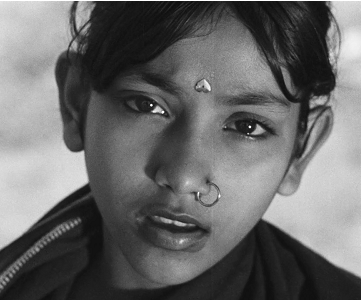- 1Select Items
- 2Delivery Options
- 3Name & Address
- 4Further Details
- 5Discounts
- 6Payment
A River Called Titas (PG)

Made in 1973, two years after Bangladesh’s independence, A River Called Titas remains a deeply relevant cinematic gem from Ritwik Ghatak, a master filmmaker who was described by Satyajit Ray as, “one of the few truly original talents in Indian cinema.”
Based on the 1956 Bengali classic novel of the same name by Adwaita Mallabarman, renowned Bengali auteur Ritwik Ghatak’s hauntingly beautiful, elegiac saga is set in pre-independence India and follows the tumultuous lives of the Malo fishing community along the banks of the Titas River in pre-Partition East Bengal (Now Bangladesh). Focusing on the tragic intertwining fates of a series of fascinating characters, in particular, the indomitable widow Basanti (Rosy Samad/Afsary), Ghatak tells the poignant story of an entire community’s vanishing way of life and culture.
An early example of hyperlink cinema (featuring multiple protagonists in interwoven narrative threads), A River Called Titas also demonstrates Ghatak’s bold creative vision that slowly but surely spreads out (like the river itself), offering infinite, non-linear perspectives on the characters and the landscape that shapes and determines their individual and collective destinies.
In the above trailer Martin Scorsese (director of The Film Foundation’s World Cinema Project, which helped to restore the film) discusses the significance of A River Called Titas.
The screening will be preceded by a pre-recorded introduction by guest curator Anupma Shanker.
Anupma Shanker is a British-Indian film curator and archives researcher with a deep and evolving interest in marginalised and minority screen narratives from, of and about the past. Her curatorial practice is focused on bringing to light films and filmmakers that remain overlooked, inaccessible and undiscovered but can offer valuable insight, wisdom and guidance in contextualizing the difficult but urgent discourses about the myths and realities of shared/contested histories, heritage, identities and memories.
Restored in 2010 by Cineteca di Bologna /L’Immagine Ritrovata laboratory, in association with Ritwik Memorial Trust, the National Film Archive of India, and The Film Foundation’s World Cinema Project.
Book Tickets
|
